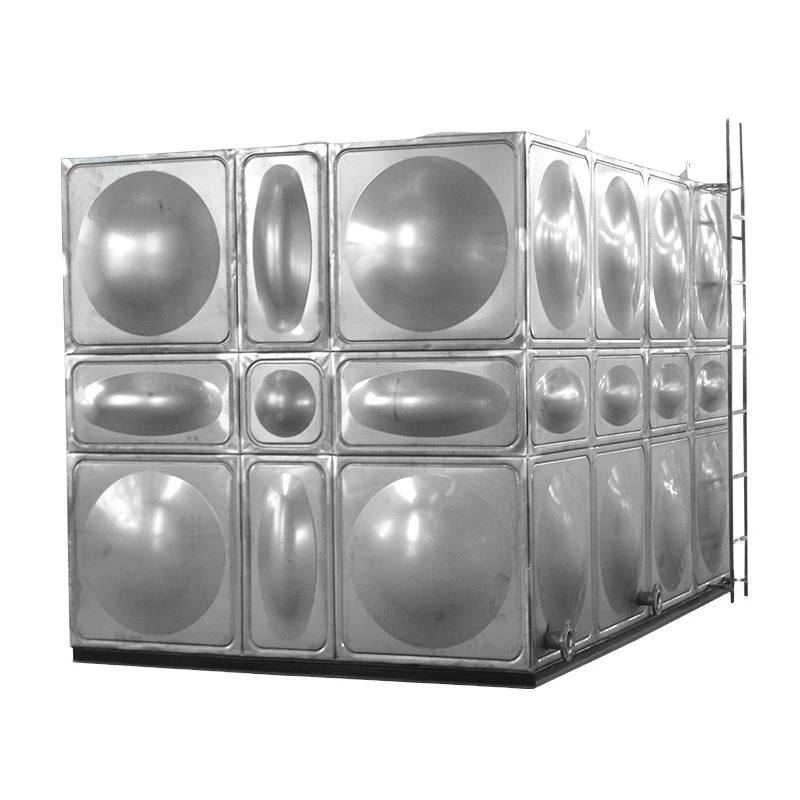Investing in a steel water tank can be a significant decision for property owners, whether for residential, agricultural, or industrial purposes. Understanding the nuances of steel water tank costs requires examining various factors, and taking a well-informed approach ensures superior quality and long-term satisfaction. This article explores the intricacies of steel water tank pricing through a lens of real-life experience, industry expertise, authoritative insight, and verifiable trustworthiness.

Steel water tanks are prized for their durability, long life, and superior protection against contamination, gaining them popularity across multiple sectors. Pricing of these tanks is influenced by various elements, such as size, design complexity, material thickness, coating, transportation, and installation requirements.
Size and Capacity The Building Blocks of Cost
The size of the steel water tank is perhaps the most direct influence on cost. Tank capacities drive material usage and dictate the engineering required to ensure structural integrity. Smaller tanks, such as those intended for household use, generally range from 1,000 to 5,000 liters. These can cost from $500 to $3,000 based on additional features like coating and thickness. Larger tanks designed for agricultural or industrial purposes can hold anywhere between 10,000 to over 100,000 liters. Such large-scale tanks naturally incur higher costs, starting at around $5,000 and potentially reaching sums closer to $30,000 or more, largely dependent on specifications and site requirements.
Design Complexity and Material Thickness Tailoring to Needs
Beyond size, the complexity of tank design also impacts the final price. Simplistic cylindrical tanks are more affordable compared to custom-designed geometries adapted for specific spatial constraints. Additionally, the gauge of the steel used—influenced by the required thickness for safety and durability—affects cost. Heavier gauge steel ensures longer life and more resistance to environmental elements but comes at a premium.
Coating and Linings Ensuring Longevity and Safety
Steel water tanks often come with coatings or linings to prevent rust and contamination. Epoxy, polyurethane, and specialized galvanization processes are common, each offering distinct benefits and affecting pricing. These coatings ensure that the tank withstands harsh weather while maintaining the purity of the water stored, an essential factor particularly for potable water storage. Tank buyers should weigh the upfront cost against potential long-term savings, as a well-coated tank reduces maintenance expenses.
steel water tank cost
Transportation and Installation Logistics in Costing
Logistical considerations such as the distance for transportation and the complexity of installation significantly influence overall costs. Storage tanks, especially in remote areas, may require specialized vehicles or lifting equipment upon delivery. Additionally, installation could involve site preparation, foundation laying, and fitting of necessary fixtures, each adding layers to the financial investment. Customers should evaluate the expertise of installers to mitigate risks of improper setup.
Expert Insight and Authority Consulting the Professionals
When dealing with substantial investments like steel water tanks, consulting industry experts and authoritative figures can provide invaluable insights. Specialized professionals can offer guidance tailored to specific goals, such as water conservation or regulatory compliance. Their experience helps negotiate better with suppliers and ensures a more strategically sound investment.
Trustworthiness and Transparency Building Long-lasting Relationships
Ensuring trustworthiness in transaction and product quality cannot be overstated. Buyers are urged to engage with reputable manufacturers with transparent pricing policies and robust after-sales service. Verifying credentials, certifications, and reviews builds trust in the supplier-consumer relationship, eradicating potential hidden costs.
Conclusion The Qualified Purchase
While steel water tank costs vary widely due to multiple influencing factors, thorough understanding and careful consideration of the individual components ensure a wise investment. Buyers should consider not only immediate costs but also the implications of long-term maintenance, efficiency, and utility. Through knowledge, expertise, and consultation with industry authorities, property owners can secure a water storage solution that is durable, efficient, and ultimately cost-effective.




